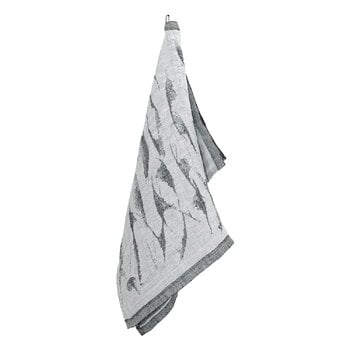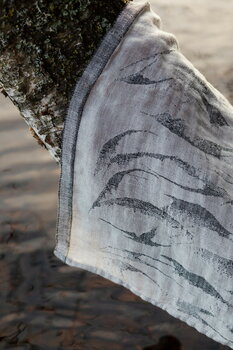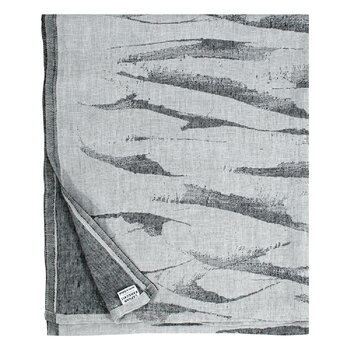The Aallokko linen towel, designed by Reeta Ek for Lapuan Kankurit, features a lovely pattern depicting waves. That's also where the towel's name comes from: Aallokko is Finnish for “waves” or “swell”.
Woven at the Lapuan Kankurit weaving mill in Finland, the towel is made of high-quality European linen, making it highly absorbent yet extremely quick-drying. What's more, linen tends to get even better and softer the more it is washed and used.
Lapuan Kankurit donates part of the proceeds of the Aallokko towels to the John Nurminen Foundation, whose Clean Baltic Sea project supports the well-being of the Baltic Sea – so that future generations can also enjoy its waves.









